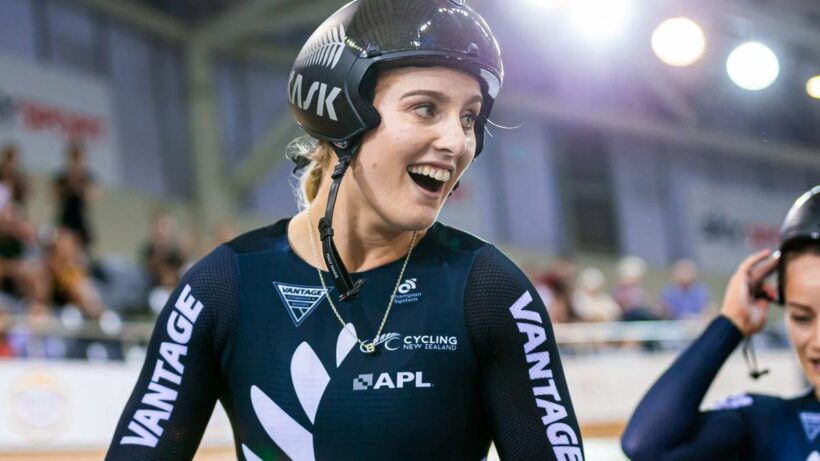The inquiry into Cycling NZ and High Performance Sport NZ following the death of Olivia Podmore will be co-chaired by QC Mike Heron and Massey Professor Sarah Leberman.
Also on the inquiry panel will be Rio Olympics silver medallist rower Genevieve Macky and Silver Ferns netballer Lesley Nicol.
An online press conference will be held at midday to discuss details of the inquiry.
Addressing the media will be High Performance Sport NZ chief executive Raelene Castle,Cycling NZ chief executive Jacques Landry and Cycling NZ board chairman Phil Holden.
The independent inquiry into culture at the sporting body’s was commissioned on August 19 after the death of Podmore in a suspected suicide.
Following the 24-year-old Rio Olympian’s death on August 9, the Herald reported that Podmore was allegedly pressured to lie by Cycling NZ during a 2018 inquiry into impropriety at the sporting body.
This inquiry was also led by QC Heron, and part of the fresh 2021 inquiry will be to evaluate whether the findings from the 2018 report were properly implemented.
In a social media post before her death, Podmore spoke of a “cover-up” at Cycling NZ and High Performance Sport NZ.
On September 11, the Herald reported that Podmore was paid a $20,000-plus sporting grant for welfare reasons.
Several Cycling NZ teammates told the Herald that awarding Podmore – who died in a suspected suicide in August – a 2018 Performance Enhancement Grant (PEG) when she did not compete at the World Championships that year was unprecedented.
Co-chair of the new inquiry, Professor Leberman, is an expert in the areas of women and leadership in sport and academia.
Some of her recent research publications have focused on mothers in sport leadership roles, and as elite athletes.
The fresh Cycling NZ independent investigation into culture
On August 19, Cycling NZ and High Performance Sport New Zealand (HPSNZ) said a joint independent inquiry would include the adequacy of the changes made in the wake of the 2018 investigation, called the Heron Review, into the high performance programme of Cycling NZ.
“We have been listening carefully to the voices of athletes who have spoken out or made contact with us directly. The Board of Cycling New Zealand are very clear they want to make sure that those perspectives are built into this inquiry right from the start,” Cycling NZ chairperson Phil Holden said in the statement.
“Given how closely we work with HPSNZ, it is important that all of our individual and joint systems are reviewed concurrently.”
Chief Executive of HPSNZ Raelene Castle said Podmore’s death had raised serious questions about athlete wellbeing in the wake of the Tokyo Olympics that must be acted
upon.
“Olivia’s death has focussed our attention once more on the complex issues surrounding athlete welfare and wellbeing, issues that the system has grappled with across a number of years. Our priority is to ensure we understand what has happened and what more can be done.
“Understanding something so complex will take time. We also must respect and engage in the coronial enquiry that is underway.
“A joint inquiry is the right thing to do to ensure we take a system view of the issue and are sensitive to all parties affected by this tragedy.”
The inquiry scope and framework will be defined in conjunction with a yet to be appointed independent inquirer.
What the 2018 Heron report found
• The Heron review was commissioned by HPSNZ in 2018 after allegations of bullying, inappropriate behaviour, inappropriate personal relationships, a drinking culture, lack of accountability and lack of follow-up.
• The independent review was conducted by Michael Heron, QC, who interviewed current and former athletes, coaches, support staff and consultants of Cycling NZ and HPSNZ.
• In his findings, Heron said: “The allegations which emerged in the media recently are well-founded. They reflect a culture in the programme of a lack of consequences for poor behaviour, a lack of accountability and sub-optimal leadership.”
• The report found that the poor behaviour lay with a small number of individuals at Cycling NZ and questioned whether the high-performance system “adequately protects the welfare of athletes”.
• Heron was satisfied an “inappropriate personal relationship existed between the coach and a female athlete”. An “old boys’ club” that prevented accountability for poor coach behaviour was also found.
Source: Read Full Article

/cloudfront-ap-southeast-2.images.arcpublishing.com/nzme/AATVWUFZYWOBXJ5TYHVS6CLIEE.jpg)
/cloudfront-ap-southeast-2.images.arcpublishing.com/nzme/VNLUIUHDHZLOS5W7MVMAX4QNIY.jpg)
/cloudfront-ap-southeast-2.images.arcpublishing.com/nzme/Q7FE2O4SDPLQ64DBMFYF5V4SKY.jpg)
/cloudfront-ap-southeast-2.images.arcpublishing.com/nzme/W24Y3FQ44PADSPU7MH6XGGJMPQ.jpg)